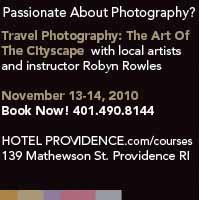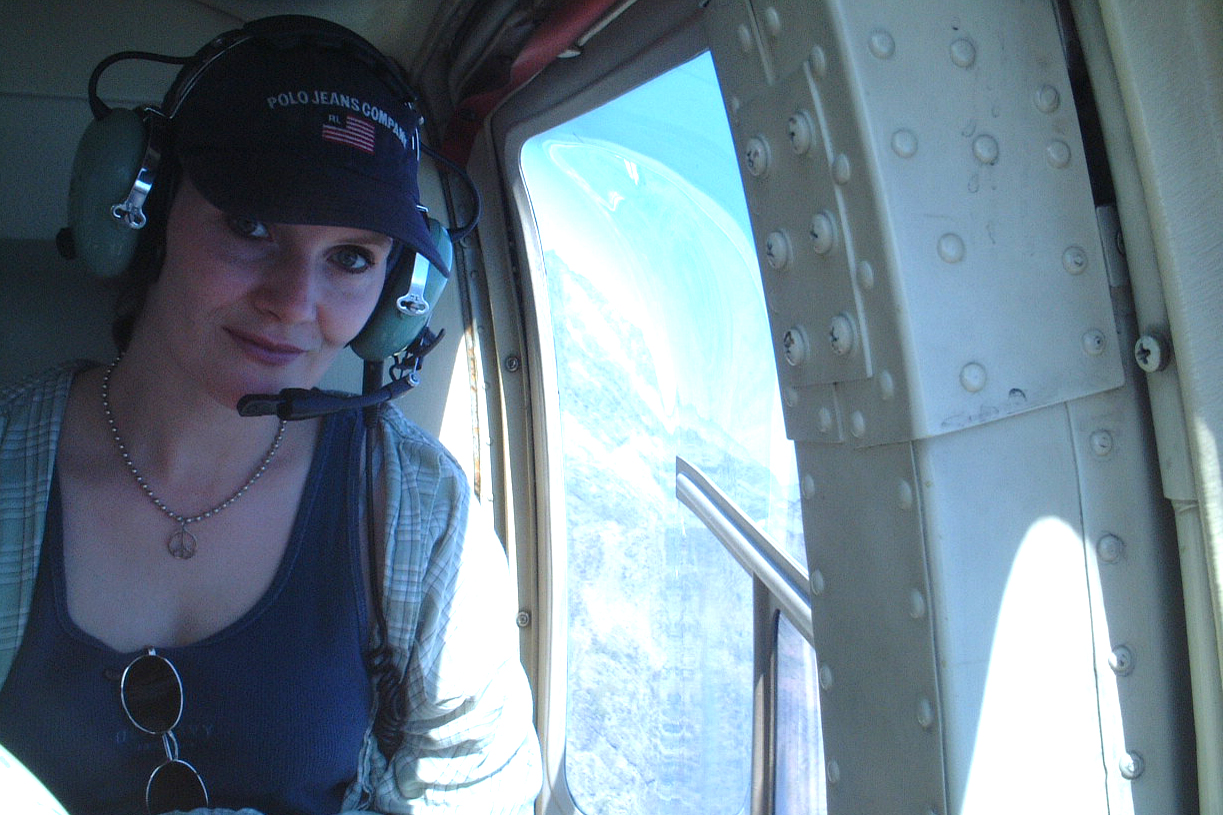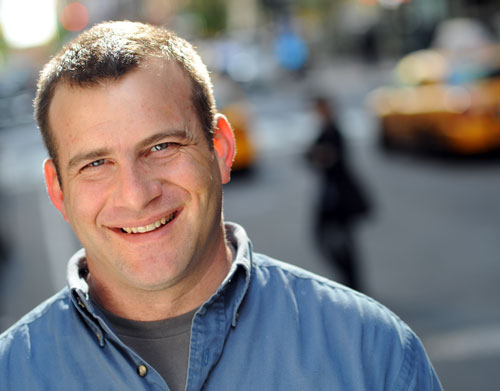Have you always wanted to become a travel writer? If the answer to that question is yes, one component of the journey you may want to focus on is travel photography. Being able to take your own pictures to accompany an article not only makes you a more valuable writer in the eyes of an editor, but it can net you extra income as well.
Today we have with us Tricia Carter, the workshop facilitator for the Hotel Providence’s newest course offering–Travel Photography. She’s going to elaborate a bit on the workshop and another upcoming event at the hotel.
Can you tell Freelance-Zone readers a bit about your travel photography course and what type of person it is designed for?
This is a photography course designed for complete beginners through intermediates who would like to refresh their previous photographic knowledge. The workshop will provide a good technical foundation along with the fundamentals of composition to dramatically improve your images. You will learn to see what makes some images memorable, while others simply are not. With this new mystery of your camera Robyn will teach you how to apply your new photographic techniques creatively to capture those perfect travel photographs.
Who is the person that will be teaching the session and what is their background in travel photography?
Robyn Rowles, owner of Robynrowlesphotography.com and Artist in You art studio, has traveled all over the world as a professional studio and freelance photographer. Robyn owned and exhibited in various distinguished galleries internationally. Recently she turned her attention to North America and is in the process of developing a photography book chronically the rural Southern United States travels capturing the strength, beauty and simplicity of its many diverse cultures.
What are some of the things that people will learn during the course?
Alongside your like-minded peers, in a nurturing and supportive environment, you will discover your personal aesthetic and apply your new eye and skills to capture a moment, a sense of place, and a true cultural portrait. You will learn how angles, lighting, and other techniques can unearth the beauty in uncommon places.
Can you tell readers what the cost is for this course and what is included for that price?
$389.00 Single Occupancy
The cost for the $389.00 for single occupancy and $544.00 for double occupancy. These rates include:
- Overnight accommodations in our Superior Rooms
- 2 days of expert instruction by Robyn Rowles
- Lunch and Dinner on Saturday
- Breakfast on Sunday
- Overnight Valet Parking
* optional keepsake book of your photographs for an additional $75.00
Our local rate is $180.00. This excludes overnight room and breakfast.
You also have a Creative Writing course coming up—can you tell readers a bit about that as well?
Our first creative writing course, As The Plot Thickens….Developing Your Novel, was so well-received we thought that it was only natural to try it again! Our next workshop will be centered on writing children’s literature. We are grateful to have Brown University instructor and author, Joanna Howard involved again, so the caliber of the workshop will be excellent.


 One of the most common questions I receive about traveling is: “what bank and what credit card should I use while traveling?”. After doing countless hours of research on the subject, and spending the last year traveling abroad, I’m confident I’ve found a good way to set up your money in an efficient manner.
One of the most common questions I receive about traveling is: “what bank and what credit card should I use while traveling?”. After doing countless hours of research on the subject, and spending the last year traveling abroad, I’m confident I’ve found a good way to set up your money in an efficient manner.

